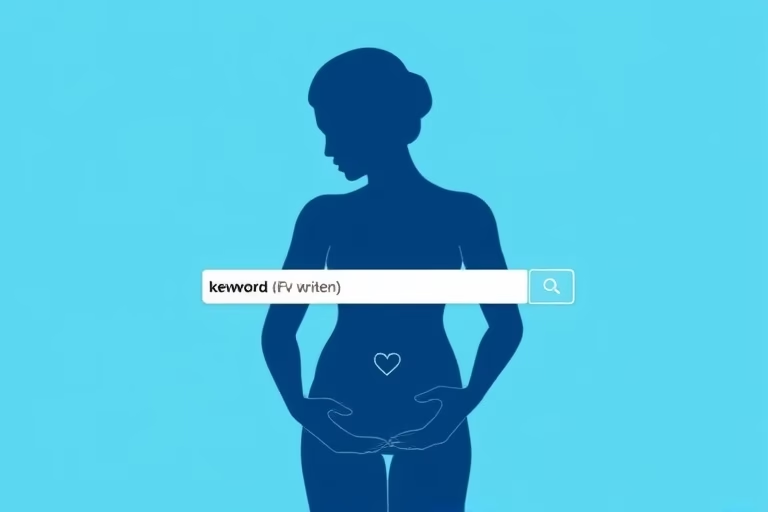We will be talking about IVF financing options, which are crucial for couples seeking to undergo in vitro fertilization. This process can be expensive, and many individuals or couples may find it challenging to cover the costs out-of-pocket. Understanding IVF financing options can provide hope and assist families in making informed decisions regarding their fertility treatment. In this article, we will explore a variety of financing options available, including loans, grants, insurance coverage, and payment plans. Armed with this knowledge, prospective parents can better navigate the financial landscape of IVF treatments and make choices that align best with their circumstances.
IVF financing options refer to the various methods patients can utilize to fund their in vitro fertilization treatments. These can include personal savings, medical loans, grants, insurance coverage, and financing plans offered by clinics. Understanding these options is essential, as they can significantly ease the burden of costs associated with IVF. Not every patient has the financial means to cover the expenses upfront, so exploring these financing options can make a substantial difference. Patients should research and compare these options, considering factors such as interest rates, repayment terms, and eligibility requirements, to find a suitable course of action for their unique situations. Properly addressing financial concerns can also help to reduce stress, allowing patients to focus on their journey to parenthood.
Understanding IVF Costs
Before exploring financing options, it is essential to understand the typical costs associated with IVF treatments. The average cost of a single IVF cycle in the United States ranges from $12,000 to $15,000. However, this figure does not include possible additional expenses such as medication, consultations, lab work, and embryo freezing. Each patient’s situation is unique, making it crucial to have a comprehensive understanding of potential financial commitments.
Many clinics provide initial consultations that can help patients gauge overall costs. Patients should also inquire about any financing options the clinic may offer. Understanding the intricacies of IVF costs enables patients to negotiate better financing terms, as they can present to lenders or financing organizations a clear picture of expected expenses.
Loans for IVF Treatment
Medical loans are a valuable option for financing IVF treatments. These loans are specifically designed for medical expenses and can cover the costs associated with IVF, including medication and laboratory fees. Traditional lenders may also offer personal loans, but they might come with higher interest rates or less favorable terms.
When investigating medical loans, patients should carefully evaluate different options. Key factors to consider include:
Many financial institutions that offer medical loans have straightforward application processes, making them accessible. However, patients should ensure they can meet monthly repayment obligations comfortably. Pre-qualification can help gauge how much one can borrow based on creditworthiness without affecting one’s credit score.
Grants and Scholarships for IVF
Grants and scholarships for IVF are available through various nonprofit organizations, and they can significantly offset treatment costs. These financial aids typically do not require repayment, making them an appealing option for many. Candidates for grants may need to undergo a selection process that considers factors such as financial need, personal circumstances, and medical necessity.
Some prominent organizations offering IVF scholarships and grants include:
Applying for such grants may require documentation that demonstrates financial need or infertility history. Patients should effectively research and prepare their applications to enhance their chances of receiving financial support.
Insurance Coverage for IVF
Insurance coverage for IVF treatments can vary widely based on the policy and location. In many areas, some insurance plans offer partial coverage for fertility treatments, while others provide none at all. Patients should carefully review their health insurance policy to determine the extent of their coverage for IVF.
Some states mandate insurance coverage for infertility treatments, which can benefit those living in such regions. Engaging with the insurance provider can yield insights into coverage limits, deductibles, and any exclusions that may apply. Understanding insurance options can assist patients in budgeting for expected out-of-pocket expenses.
Payment Plans Offered by Clinics
Many fertility clinics offer in-house financing or payment plans for patients undergoing IVF treatments. These programs can provide more manageable ways to finance the procedure, breaking down costs into smaller, more affordable monthly payments.
When inquiring about payment plans, it is important for patients to understand:
This financing method allows couples to undergo treatments without overwhelming financial strain, paying off their responsibilities over time.
Use of Health Savings Accounts (HSAs) and Flexible Spending Accounts (FSAs)
Health Savings Accounts (HSAs) and Flexible Spending Accounts (FSAs) are valuable tools for financing healthcare costs, including IVF treatments. HSAs allow individuals to set aside pre-tax dollars for medical expenses, while FSAs enable employees to use a portion of their salary, tax-free.
This option is advantageous as it not only reduces overall healthcare costs but also encourages savings for future expenses. Patients should confirm which specific procedures and medications qualify for these accounts prior to making any decisions.
Community and Online Support Resources
Various online communities and support groups can provide invaluable resources and insights into IVF financing options. They may share personal experiences, offer advice on funding, and connect patients with organizations and initiatives that provide financial assistance.
Joining community groups allows potential patients to gain perspective and learn about financing options they may not have considered. Personal testimonials can help demystify the financial aspects of IVF, fostering a sense of solidarity and support.
Comparison of IVF Financing Options
Comparing various IVF financing options is critical for finding the most suitable plan. Each option carries different terms, benefits, and drawbacks. Patients should consider their individual financial situations and preferences when determining the best path forward.
While loans might involve repayments with interest, grants typically do not require repayment and can offer substantial support. Insurance options may significantly reduce direct costs but require careful navigation of policy details. Clinics with payment plans provide immediate access to treatments without upfront payments, making them a favorable choice for many.
Final Thoughts
Understanding IVF financing options is crucial for couples navigating the challenges of infertility. With the average costs of IVF treatments and the various financing methods available, it is essential to conduct thorough research to find the appropriate solution that meets individual financial needs. Couples should create a budget, analyze their financial conditions, and weigh the pros and cons of each financing option.
From loans to grants and insurance coverage to payment plans, patients have a variety of resources available to assist them throughout their IVF journey. In taking proactive measures to understand and utilize these available options, individuals can significantly alleviate financial stress while focusing on the journey to parenthood.
Your search for financial assistance need not be daunting. Many resources are available, and connecting with others who have traveled down this path can provide support and guidance. Understanding IVF financing options empowers couples to make informed decisions that can lead to successful treatments and, ultimately, growing families.
Frequently Asked Questions
1. What are my options for paying for IVF treatments?
Patients can explore various options such as medical loans, grants, insurance coverage, payment plans offered by clinics, or utilizing Health Savings Accounts (HSAs) and Flexible Spending Accounts (FSAs).
2. Can I use insurance to cover IVF costs?
Insurance coverage for IVF can vary greatly. It is essential for patients to check their specific health insurance policy to understand the extent of coverage for infertility treatments or IVF.
3. Are there grants available for IVF?
Yes, several organizations offer grants specifically for IVF treatments based on financial need, personal circumstances, and medical requirements. It is advisable to research these organizations to find applicable opportunities.
4. How can I access payment plans for IVF?
Many fertility clinics provide internal financing plans. Calling the clinic directly can clarify what payment options they offer and any eligibility requirements.
5. What should I consider when applying for a medical loan for IVF?
When applying for a medical loan, consider the interest rates, loan terms, application process, and repayment flexibility to ensure that you select an option that aligns with your financial situation.
Further Reading
What Type of Psychotherapy Is Best for Anxiety?







